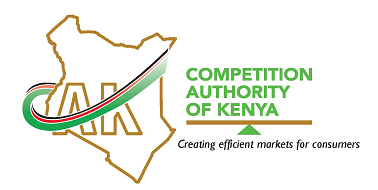Enhancing Consumer Welfare In Digital Platforms
A recently released study on digital platforms in Kenya revealed that only 16% of the consumers of food delivery and grocery platforms in Nairobi and Mombasa have complained about unsatisfactory service. Of the complaints raised, 60% were neither attended to by the platforms nor followed up by the complainant.
Consumers have the right to express their dissatisfaction with a good or a service they purchased and a right to get appropriate redress. Article 46 of the Constitution of Kenya outlines the four unassailable consumer rights; quality of products and services, benefits derived from the consumption of the products and services, product safety, and compensation for loss or injury occasioned by defective goods and services. It, therefore, behooves all responsible stakeholders in this industry to remedy consumers’ dissatisfaction.
The aforementioned study which was conducted by the Competition Authority of Kenya (CAK), also determined that food and grocery retailers push about 16% of their products through online platforms. The commonly used platforms are Glovo, Jumia Food (which closed shop in December 2023), Uber Eats, and Bolt Food. Consumer choice on the use of the platform is based on the delivery speed, platform pricing, and loyalty/discounts or rewards.
It, therefore, makes sense that about half of the complaints received relate to delayed delivery. Indeed, 46% and 40% of the respondents complained about delayed deliveries and product quality, respectively. Another interesting finding from the survey is that, while 83% of the platforms have internal consumer complaint redress mechanisms, some attend to complaints from outside Kenya. Unfortunately, this subjects users to foreign laws and tedious follow-up procedures. This inefficient model should be addressed to enhance consumer welfare.
The Competition Act mandates the Competition Authority of Kenya to investigate consumer complaints and, where the matter falls outside its mandate, refer it to an appropriate agency. Over the last three years, the CAK has investigated and resolved over 1,200 consumer complaints and facilitated savings of over Ksh. 40 million through various forms of redress, including repairs, refunds, and replacement.
Eight percent of these complaints were related to e-commerce, whose challenging investigations call for unique solutions. For instance, a complaint was recently lodged with the CAK by a consumer regarding hair accessories purchased online. The seller did not have a physical location, making it difficult for the Authority to serve them with a notice of investigation. As a workaround, the CAK administered the notice via Instagram, a social media platform, thereby ensuring that the complaint was resolved.
Another challenge noted during the study is that platforms require users to provide some information during the onboarding process, with no opt-out options. If one declines to provide all the information sought, they are barred. Platforms argue that they use the data collected to optimize services, improve user experience, and boost operational efficiency. Consumers, on the other hand, are concerned that their data may be used to harm them. Enhanced data protection was cited by 46% of the respondents as one of the concerns that, if attended to, would improve their online shopping experience.
In conclusion, matters of delivery speed, data privacy, and product quality imperatively require action by platforms to enhance the online consumer experience. Further, for the rights of consumers to be upheld as envisaged in the Constitution of Kenya, we make four proposals. First, platforms operating locally should be required to have representative offices to attend to consumers within the ambit of Kenyan law. This will not only reduce the time taken to resolve complaints but will provide solutions that are customized to our local context. Secondly, platforms should provide opt-out options for consumers unwilling to submit all data required at the onboarding stage. While the benefits derived from consumer data are clear, the platforms ought to offer choices to consumers regarding the processing of personal data. Third, consumer watchdogs must employ technology innovatively to resolve consumer complaints promptly and to enhance customer satisfaction. Lastly, education is crucial in ensuring that consumers understand their rights and obligations and the need to interrogate and comprehend the terms and conditions provided by the platforms.
For feedback, email info@cak.go.ke

